Books by Makere Stewart-Harawira

Essential Guide to Critical Development Studies, 2021
In this time of unprecedented ecosystem collapse and species loss, the relevance of Indigenous en... more In this time of unprecedented ecosystem collapse and species loss, the relevance of Indigenous environmental knowledge has gained increasing recognition. Over at least the last two decades, there have been increasing efforts from international agencies such as the International Union for the Conservation of Nature, the United Nations Environment Programme, the World Economic Forum, the World Bank, and others to integrate Indigenous traditional ecological knowledge in mitigating and adapting to, the effects of climate change on ecosystems and biodiversity.What is remarkable about this is the degree to which traditional environmental knowledge has survived the 500-year onslaught on its relevance and veracity by the adherents of developmentalist ideologies and market capitalism. Ironically, however, this apparent good-news story is countered by a legacy of dispossession of land, language, and cultural heritage that in the 21st century remains a critical site of struggle. At the heart of this struggle is the apparatus of settler colonialism on one hand, and Indigenous sovereignty, including recognised rights to cul- tural heritage, traditional lands, languages, and customs, on the other. Straddling these two positions is the politico/economics of market capitalism and the commodification of the lifeworld in the name of ever-expanding growth, innovation, and development.
Alongside calls for transition from fossil fuel energy sources, renewed acts of resistance from Indigenous communities may be read as a response to the increase in damaging fossil fuel and hydro development, the last gasps, perhaps, of an industry in crisis.Although often seen as quite distinct, notions of resistance and deep resilience are connected (Brown, 2015). As Penehira et al. (2014), citing Cohen (2001: 147), remark, ‘the term resilience, when applied to indigenous peoples has a long history that draws on multiple cultural strands’.
The Indigenous reality is one of resilience, refusal to disappear; it is a reflection of the strength and beauty of peoples who have lived here since humans existed on this land, and will continue to do so, and that, furthermore, is a testimony to the refusal of indigenous peoples to accept assimilation or integration as an acceptable strategy for their ongoing survival.
In this contribution, tensions between Indigenous sovereignty and settler colonialism contextualise Indigenous resilience in the face of systems collapse and colonialism’s constantly evolving strategies of capture and incorporation.The chapter begins with a discussion of two modes of colonialisation: imperialist and settler colonialism, twinning development and market capitalism with the ratification of states and the re-casting of sovereign Indigenous nations as populations in the international world order. Of par- ticular importance is the relationship between ideologies of development and the
violence of settler colonialism.This section is followed by an overview of Indigenous modes and strategies of resistance and resilience and the demands for recognition of Indigenous rights within international law. Here the focus is on the struggle for recogni- tion of Indigenous rights, including the right to full, free, prior, and informed consent to any form of development on their traditional lands, and the evolving responses of settler states.As a strategy of extinguishment, settler colonialism’s impact is not only historical; its servitude to the imperatives of market capitalism and the engulfing of the lifeworld marks the present moment with a long footprint into the future. Indigenous peoples’ resilience in the face of shape-shifting strategies by states (and industry) may be seen as a bulwark against a dimming future.The final section points towards possibilities for hope in the reframing of governance centred on the well-being of human and non-human species and interrelationships.
... Law / 124 State Sovereignty and the Right to Self-Determination / 127 Human Rights andIndigen... more ... Law / 124 State Sovereignty and the Right to Self-Determination / 127 Human Rights andIndigenous Self ... Peoples in the International Arena / 130 New Mechanisms in International Law / 132 Indigenous Sovereignty and Developmentalism / 136 5 Global Hegemony and ...
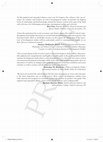
The Essential Guide to Critical Development Studies (Proof). Eds. Henry Veltmyer & Paul Bowles , 2021
The Essential Guide to Critical Development Studies provides an up-to-date and authoritative intr... more The Essential Guide to Critical Development Studies provides an up-to-date and authoritative introduction to the field, challenging mainstream development discourse and the assumptions that underlie it.
Critical development studies lays bare the economic, political, social, and environmental crises that characterise the current global capitalist system, proposing instead systemic change and different pathways for moving beyond capitalism into a new world of genuine progress where economic and social justice and ecological integrity prevail. In this book, the authors challenge market-driven, neoliberal development agendas, incorporating analyses of class, gender, race, and the dynamics of uneven capitalist development. This thoroughly revised and expanded second edition includes:
• 18 new chapters, including on topics such as philanthrocapitalism, race, the energy transition, Indigenous resistance and resilience, and global health
• Expanded global coverage, including new chapters on South Africa, North Africa, and the Gulf Arab states
• A new section on resistance and alternatives
• Additional pedagogical features, including a glossary of key terms, discussion questions, and expanded guides for further reading.
This textbook will be essential reading for students of global development, political science, sociology, economics, gender studies, geography, history, anthropology, agrarian studies, international political economy, and area studies. It will also be an important resource for development researchers, practitioners, and policymakers.

Resilient Systems, Resilient Communities, 2018
Against the background of anthropogenic change, rapidly rising global temperatures and extremes o... more Against the background of anthropogenic change, rapidly rising global temperatures and extremes of crisis across multiple spheres, the real possibility of synchronous inter-systemic failure at a level involving multiple cascading system failures (Homer-Dixon et.al. 2015) demands urgent responses. From this perspective, the need for an integrated, whole-system approach to understanding and fostering radical social and ecological transformation has never been starker. The impact of rapid and irreversible biospheric changes calls for an urgent re-thinking of the role of resilience in understanding the ability of both human and non-human communities to adapt to a vastly different environment with enormous social and economic as well as biological implications. In this context, resilience thinking and resilience theory have become major tools for understanding social and ecological change across multiple disciplinary fields.
This small contribution attempts to clarify the usefulness of resilience as a framework for understanding and supporting the adaptability of social and ecological systems by centring recent work by scholars in the Intersections of Sustainability research network within current resilience thinking and theory. After noting some key critiques of resilience theory approaches, this brief introduction begins with some conceptualizations of resilience in the environmental literature, follows with a note of some applications of social or community resilience and concludes with the major tool as well as challenge to establishing social and ecosystem resilience, that of management and governance
'In this timely and important book, Stewart Harawira provides a wide-ranging critique of globalis... more 'In this timely and important book, Stewart Harawira provides a wide-ranging critique of globalisation from an interdisciplinary perspective. But this is not all. This book also develops a sophisticated analysis of the impact of globalisation on indigenous peoples, and more radically, what indigenous epistemological perspectives can offer in return to the theories and practices of globalisation.' - Professor Stephen May, University of Waikato, New Zealand.
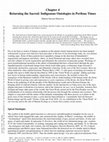
The Ashgate Research Companion to Human Ecology. Williams, L., McIntosh, A. & Roberts, R. (Eds.). UK.: Ashgate, pp. 73-88., 2012
Warnings of great transformational moments in the affairs of humankind that have echoed down thro... more Warnings of great transformational moments in the affairs of humankind that have echoed down through the ages signalled periods of profound change from which result either great, evolutionary leaps forward or cataclysmic destruction, regression, and ultimately extinction. In the case of the first scenario, these are often marked by what cultural historian Thomas Berry (1991, p.1) calls great overarching movements of people who arise to fulfil what he described in 1999 as the "Great Work of a people" adding each time new layers of human understanding, organization and consciousness. He includes in these the emergence of the Humanist tradition of the Greeks with its understanding of the human mind, the Great Work of Israel in giving voice and expression to a new experience of the divine, the Great Work of Rome in the gathering of all the peoples of the Mediterranean world and in Western Europe, the bringing about of ordered relations with one another. In the land known as China arose one of the most elegant and great civilisations ever known, and in the Americas, he says, (as in Australia, Aotearoa New Zealand and many other parts of the world), the Great Work carried out by the First Peoples was the establishment of an intimate relationship with the powers that brought the continent into existence. This chapter is concerned with the nature of that intimate relationship with these powers as it relates to the great crisis of this moment

CONTENTS
Introduction: From Symposium to Book Joyce Green
Part 1: What is Aboriginal Feminism?
... more CONTENTS
Introduction: From Symposium to Book Joyce Green
Part 1: What is Aboriginal Feminism?
Taking Account of Aboriginal Feminism Joyce Green
Aboriginal Women on Feminism: Exploring Diverse Points of View Verna St. Denis
Metis and Feminist: Reflections from the Margins Emma LaRocque
Part II: Aboriginal Feminist Analysis and Theory
Sami Women and Feminism: Strategies for Healing and Transformation Rauna Kuokkanen
Native American Feminism, Sovereignty, and Social Change Andrea Smith
Gender, Essentialism, and Feminism in Samiland Jorunn Eikjok translated by Gunhild Hoogensen
Indigenous Feminism as Resistance to Imperialism Makere Stewart-Harawira
Balancing Strategies: Aboriginal Women and Constitutional Rights in Canada Joyce Green
Part III: Aboriginal Feminist Activists and Sister-Travellers
Looking Back, Looking Forward Shirley Green
Maori Women and Leadership in Aotearoa Kathie Irwin
Yes, My Daughter, We Are Cherokee Women Denise Henning
My Home Town Northern Canada South Africa Emma LaRocque
Culturing Politics and Politicizing Culture Shirley Bear
An Aboriginal Feminist on Violence Against Women Tina Beads with Rauna Kuokkanen
Colleen Glenn: A Metis Feminist in Indian Rights for Indian Women Colleen Glenn with Joyce Green
Woman of Action: An Interview with Sharon McIvor Sharon McIvor with Rauna Kuokkanen
Making space for indigenous feminism, Jan 1, 2007
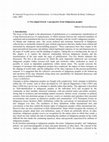
National Perspectives on Globalization: A Critical Reader. Paul Bowles & Henry Veltmeyer (eds),, 2007
The focus of this chapter is the phenomenon of globalization as a contemporary manifestation of a... more The focus of this chapter is the phenomenon of globalization as a contemporary manifestation of a long historical process of expansionism, in which tensions between the contested mandates of expansion and accumulation has been in constant interplay with the world’s indigenous peoples. This chapter explores the dialectic relationship between indigenous peoples and the transformation of the state under the aegis of globalization. Two key themes underpin this discussion. The first is the processes by which the early imperialist endeavour saw sovereign indigenous peoples within resource-rich lands and territories either eradicated as much as possible or recast as dependent populations within nation states. The second concerns the strategies of resistance that indigenous peoples have employed, the impact of these strategies on the shaping of world order, and the ambiguities of the state responses in this present postmodern moment.
Papers by Makere Stewart-Harawira
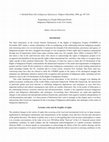
Indigenous Diplomacies, 2009
The final ratification of the United Nations Declaration of the Rights of Indigenous Peoples (UND... more The final ratification of the United Nations Declaration of the Rights of Indigenous Peoples (UNDRIP) in November 2007 marks a certain culmination of the re-configuring of the relationship between Indigenous peoples and colonizing states over several decades. It represents the triumph of the determination, persistence and agency of Indigenous peoples who have struggled unceasingly to win recognition of their rights and of injustices perpetuated through acts of imperialism which many argue continue today (see, for example, Beier 2005a; Corntassel 2007). It also draws a line in the sand between states who choose to acknowledge the rights of Indigenous peoples to be recognized and identified as having specific rights within international law, and those who refuse to recognize these rights outside of their juridical frameworks. The reluctance of some key states to ratify the UN Declaration of the Rights of Indigenous Peoples contextualizes the demarcated responses to the needs and requirements of Indigenous peoples and the Fourth World conditions in which many Indigenous communities exist inside leading industrialized states including Canada, the US, Australia and to a lesser extent, Aotearoa New Zealand. That these same key colonizing states have thus far refused to ratify the UNDRIP speaks to the nature of the ideological struggle that underpins any diplomatic initiatives aimed at the recognition and enactment of Indigenous rights, including soft law initiatives such as the UN Declaration on the Rights of Indigenous Peoples.
This wider ideological struggle has long historical antecedents. It has involved a struggle over shaping the politico/economic architecture of the world within a particular framework. Within this framework, the intersection of particular global and local interests is redefining Indigenous diplomacies and ontologies in ways that have important political and ethical consequences and which are notably bifurcated. One of the points of bifurcation is the relationship between economic interests and self-determination. Another is the separation between Indigenous politics and Indigenous philosophies and ontologies. Overarching these bifurcations are rapid and significant changes to the national and international juridical frameworks, particularly with regard to juridical interpretations of self-determination and rights. It is these points of bifurcation that I seek to untangle in this chapter and it is at these intersections that I locate my argument for the re-locating of Indigenous philosophies and ontologies at the centre of Indigenous diplomacies.
Globalization and “Minority” Cultures, 2015

Wires Climate Change, Dec 28, 2020
In 2019, the climate emergency entered mainstream debates. The normative frame of climate justice... more In 2019, the climate emergency entered mainstream debates. The normative frame of climate justice as conceived in academia, policy arenas, and grassroots action, although imperative and growing in popularity across climate movements, is no longer adequate to address this emergency. This is for two reasons: first, as a framing for the problem, current notions of climate justice are insufficient to overcome the persistent silencing of voices belonging to multiple "others"; and second, they do not question, and thus implicitly condone, human exceptionalism and the violence it enacts, historically and in this era of the Anthropocene. Therefore, we advocate for the concept of multispecies justice to enrich climate justice in order to more effectively confront the climate crisis. The advantage of reconceptualizing climate justice in this way is that it becomes more inclusive; it acknowledges the differential histories and practices of social, environmental, and ecological harm, while opening just pathways into uncertain futures. A multispecies justice lens expands climate justice by decentering the human and by recognizing the everyday interactions that bind individuals and societies to networks of close and distant others, including other people and more-than-human beings. Such a relational lens provides a vital scientific, practical, material, and ethical road map for navigating the complex responsibilities and politics in the climate crisis. Most importantly, it delineates what genuine flourishing could mean, what systemic transformations may involve (and with whom), how to live with inevitable and possibly intolerable losses, and how to prefigure and enact alternative and just futures.
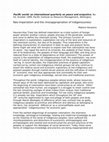
Pacific world: an international quarterly on peace and ecojustice, 54, 1999
Haunani-Kay Trask has defined imperialism as a total system of foreign power wherein another cult... more Haunani-Kay Trask has defined imperialism as a total system of foreign power wherein another culture, people and way of life penetrate, transform and come to define the colonised society. The primary function of imperialism is exploitation; exploitation not only of the land and resources of the colonised country, but also of its peoples. Thus imperialism is the defining characteristic of colonialism in both its past and present forms. Some might ask what still remains to exploit now that colonisation has done its worst -has raped the land of its minerals, the seabeds of their fishes, the soil of its biodiversity, the peoples of their language and DNA, and long since reduced them to a state of dependence on their colonisers? The answer of course is the exploitation of indigenousness itself, the exploitation, nay even theft of cultural identity, the misappropriation of the essence of indigenous `be'ing. In recent decades, the imperialist practices of global capitalism carried out by certain non-indigenous interest groups not only continue to assert the relative social and economic supremacy of non-indigenous and peasant peoples through market-driven policies and the reification of notions of `economic man' but also appropriate and commodify for their own economic gain indigenous knowledge, sacred sites and traditional practices.
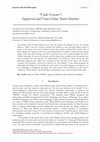
Journal of World Philosophies 5 (20, 2020
The questions raised by Māori identity are not static, but complex and changing over time. The et... more The questions raised by Māori identity are not static, but complex and changing over time. The ethnicity known as "Māori" came into existence in colonial New Zealand as a new, pan-tribal identity concept, in response to the trauma of invasion and dispossession by large numbers of mainly British settlers. Ideas of Māori identity have changed over the course of succeeding generations in response to wider social and economic changes. While inter-ethnic marriages and other sexual liaisons have been common throughout the Māori-Pākehā relationship, the nature of such unions, and the identity choices available to their descendants, have varied according to era and social locus. In colonial families, the memory of a Māori ancestor was often deliberately suppressed, and children were encouraged to deny that part of their history and "become" European New Zealanders: a classic form of what we call "trans-ethnicity." From a Māori perspective, the relationship with Pākehā has been marked by a series of losses: loss of land, language, social cohesion, even loss of knowledge of whakapapa (genealogy). This article explores this last form of loss, which leads to "suppressed" Māori identities, and possible effects of attempting to recover such lost Māori identity rights. 1 Introduction Aotearoa New Zealand is a small, sea-bounded country that has been called a "social laboratory" 1 and for many years has enjoyed a reputation for "the best race relations in the world." 2 It is a settler-Indigenous nation-state 3 where the primary bicultural relationship is between the Indigenous Māori people and the settler white people, of mainly British origin, locally known as "Pākehā"-though not without contestation. 4 The ethnicity name Pākehā recognizes the relationship with Māori formalized in Te Tiriti o Waitangi-the Treaty of Waitangi. 5 Te reo Māori (the Māori language) is an official national language. 6 Ethnic identity is based on self-identification: no system of official ethnic registration exists. Māori-Pākehā mixed marriages and families have been common and accepted in Aotearoa New Zealand for several generations. Yet, like all nations built on primary relationships between Indigenous and settler groups, this largely cordial coexistence of Māori and Pākehā has proceeded against a violent backdrop of colonialism, Eurocentrism, and white norms. For these reasons, Aotearoa New Zealand makes a rich context for examining complex questions of contemporary Indigenous identity and settler-Indigenous relationships. The catalyst for this article was a rumor about Makere that has been going around in local academic circles for twenty-plus years: that she claims an "invented" or "made-up" Māori identity.

Environmental Politics, 2020
This essay seeks to open a conversation about multispecies justice in environmental politics. It ... more This essay seeks to open a conversation about multispecies justice in environmental politics. It sets out some of the theoretical approaches, key areas of exploration, and obvious challenges that come with rethinking a core plank of liberal theory and politics. First, we discuss some of the diverse scholarly fields that have influenced the emergence of multispecies justice. We then discuss core concerns at the centre of this reconfiguration of justice – including broadening conceptions of the subject of justice and the means and processes of recognition (and misrecognition). The importance of deconstructing and decolonising the hegemony of liberal political discourse is crucial, and is part of a larger project for multispecies justice to rework a politics of knowledge and practice of political communication. Finally, we begin to explore what a commitment to multispecies justice might demand of politics and policy.

Wires Water, Aug 28, 2020
The landmass of Aotearoa New Zealand totals some 268,000 square kilometres, including 425,000 km ... more The landmass of Aotearoa New Zealand totals some 268,000 square kilometres, including 425,000 km of rivers, more than 4000 lakes and approximately 200 aquifers (MfE 2007). For Aotearoa New Zealand's indigenous Maori, these freshwater bodies are part of a complex system of genealogical relationships from which derive the traditional Maori knowledge, values and ethics which shape Maori customary practices for freshwater monitoring and freshwater management. The rupture of these relationships through a century and a half of colonization and industrialization and the dispossession of Maori from their lands and waters also dispossessed Maori of their rights and responsibilities to enact traditional customary practices of kaitiakitanga, stewardship of the natural environment. In 2017 Aotearoa New Zealand's freshwater systems were designated as amongst the worst in the world. Today they are continuing to degrade. This article focuses on Maori traditional knowledge, ethics and values for freshwater monitoring and management. The article reviews the impact of colonization and development on Aotearoa New Zealand's freshwater systems, the extensive struggle by Maori for recognition of Maori traditional knowledge, rights and responsibilities regarding waterways, and the development of contemporary Maori models for freshwater monitoring and management. Treaty settlements and other legislative initiatives have also catalyzed changes in freshwater management. Faced with catastrophic climatic impacts on freshwater systems and implications for the wellbeing of species and communities, questions of how to ethically manage freshwater are critical. Maori freshwater ethics, values and practices provide a model of renewal and possibility, although one that is not without contest.
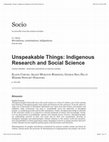
Indigenous peoples have always done research. That is, they have always asked questions that matt... more Indigenous peoples have always done research. That is, they have always asked questions that mattered to them and they have always sought to answer them, mobilizing all relevant sources of knowledge. Only recently, however, has Indigenous research moved from Indigenous communities into the academy, challenging the colonial institutional relations and practices that have constituted Indigenous peoples as objects of research rather than as authorities about their own ways of knowing, being and doing. In this article, we make the case for Indigenous research as made up of vital, transformative practices that emerge from and for Indigenous peoples, but that have at the same time profound implications for ‘ordinary’ social science. Moreover, we write with the avowedly political aim of participating in struggles to decolonize the social sciences. Yet despite the emergence of strong Indigenous voices within contemporary research there are both old and new threats to these voices in the academy. This is because Indigenous research is about knowledge production and application and both the philosophical and practical tenets of such knowledge subvert dominant social research. Too often, as Aileen Moreton- Robinson (2002:189) has argued, Indigenous knowledges are “unspeakable things”, not least because they challenge taken-for-granted assumptions that undergird the ongoing dominance of colonial practices of social science. Here we offer one account of Indigenous research in the academy, explaining the ways that Indigenous research acts as a form of resistance against centuries-old relations of colonization. At the same time, we explain shape shifting yet familiar threats to Indigenous resurgence, including specific attacks on Indigenous research.











Uploads
Books by Makere Stewart-Harawira
Alongside calls for transition from fossil fuel energy sources, renewed acts of resistance from Indigenous communities may be read as a response to the increase in damaging fossil fuel and hydro development, the last gasps, perhaps, of an industry in crisis.Although often seen as quite distinct, notions of resistance and deep resilience are connected (Brown, 2015). As Penehira et al. (2014), citing Cohen (2001: 147), remark, ‘the term resilience, when applied to indigenous peoples has a long history that draws on multiple cultural strands’.
The Indigenous reality is one of resilience, refusal to disappear; it is a reflection of the strength and beauty of peoples who have lived here since humans existed on this land, and will continue to do so, and that, furthermore, is a testimony to the refusal of indigenous peoples to accept assimilation or integration as an acceptable strategy for their ongoing survival.
In this contribution, tensions between Indigenous sovereignty and settler colonialism contextualise Indigenous resilience in the face of systems collapse and colonialism’s constantly evolving strategies of capture and incorporation.The chapter begins with a discussion of two modes of colonialisation: imperialist and settler colonialism, twinning development and market capitalism with the ratification of states and the re-casting of sovereign Indigenous nations as populations in the international world order. Of par- ticular importance is the relationship between ideologies of development and the
violence of settler colonialism.This section is followed by an overview of Indigenous modes and strategies of resistance and resilience and the demands for recognition of Indigenous rights within international law. Here the focus is on the struggle for recogni- tion of Indigenous rights, including the right to full, free, prior, and informed consent to any form of development on their traditional lands, and the evolving responses of settler states.As a strategy of extinguishment, settler colonialism’s impact is not only historical; its servitude to the imperatives of market capitalism and the engulfing of the lifeworld marks the present moment with a long footprint into the future. Indigenous peoples’ resilience in the face of shape-shifting strategies by states (and industry) may be seen as a bulwark against a dimming future.The final section points towards possibilities for hope in the reframing of governance centred on the well-being of human and non-human species and interrelationships.
Critical development studies lays bare the economic, political, social, and environmental crises that characterise the current global capitalist system, proposing instead systemic change and different pathways for moving beyond capitalism into a new world of genuine progress where economic and social justice and ecological integrity prevail. In this book, the authors challenge market-driven, neoliberal development agendas, incorporating analyses of class, gender, race, and the dynamics of uneven capitalist development. This thoroughly revised and expanded second edition includes:
• 18 new chapters, including on topics such as philanthrocapitalism, race, the energy transition, Indigenous resistance and resilience, and global health
• Expanded global coverage, including new chapters on South Africa, North Africa, and the Gulf Arab states
• A new section on resistance and alternatives
• Additional pedagogical features, including a glossary of key terms, discussion questions, and expanded guides for further reading.
This textbook will be essential reading for students of global development, political science, sociology, economics, gender studies, geography, history, anthropology, agrarian studies, international political economy, and area studies. It will also be an important resource for development researchers, practitioners, and policymakers.
This small contribution attempts to clarify the usefulness of resilience as a framework for understanding and supporting the adaptability of social and ecological systems by centring recent work by scholars in the Intersections of Sustainability research network within current resilience thinking and theory. After noting some key critiques of resilience theory approaches, this brief introduction begins with some conceptualizations of resilience in the environmental literature, follows with a note of some applications of social or community resilience and concludes with the major tool as well as challenge to establishing social and ecosystem resilience, that of management and governance
Introduction: From Symposium to Book Joyce Green
Part 1: What is Aboriginal Feminism?
Taking Account of Aboriginal Feminism Joyce Green
Aboriginal Women on Feminism: Exploring Diverse Points of View Verna St. Denis
Metis and Feminist: Reflections from the Margins Emma LaRocque
Part II: Aboriginal Feminist Analysis and Theory
Sami Women and Feminism: Strategies for Healing and Transformation Rauna Kuokkanen
Native American Feminism, Sovereignty, and Social Change Andrea Smith
Gender, Essentialism, and Feminism in Samiland Jorunn Eikjok translated by Gunhild Hoogensen
Indigenous Feminism as Resistance to Imperialism Makere Stewart-Harawira
Balancing Strategies: Aboriginal Women and Constitutional Rights in Canada Joyce Green
Part III: Aboriginal Feminist Activists and Sister-Travellers
Looking Back, Looking Forward Shirley Green
Maori Women and Leadership in Aotearoa Kathie Irwin
Yes, My Daughter, We Are Cherokee Women Denise Henning
My Home Town Northern Canada South Africa Emma LaRocque
Culturing Politics and Politicizing Culture Shirley Bear
An Aboriginal Feminist on Violence Against Women Tina Beads with Rauna Kuokkanen
Colleen Glenn: A Metis Feminist in Indian Rights for Indian Women Colleen Glenn with Joyce Green
Woman of Action: An Interview with Sharon McIvor Sharon McIvor with Rauna Kuokkanen
Papers by Makere Stewart-Harawira
This wider ideological struggle has long historical antecedents. It has involved a struggle over shaping the politico/economic architecture of the world within a particular framework. Within this framework, the intersection of particular global and local interests is redefining Indigenous diplomacies and ontologies in ways that have important political and ethical consequences and which are notably bifurcated. One of the points of bifurcation is the relationship between economic interests and self-determination. Another is the separation between Indigenous politics and Indigenous philosophies and ontologies. Overarching these bifurcations are rapid and significant changes to the national and international juridical frameworks, particularly with regard to juridical interpretations of self-determination and rights. It is these points of bifurcation that I seek to untangle in this chapter and it is at these intersections that I locate my argument for the re-locating of Indigenous philosophies and ontologies at the centre of Indigenous diplomacies.
Alongside calls for transition from fossil fuel energy sources, renewed acts of resistance from Indigenous communities may be read as a response to the increase in damaging fossil fuel and hydro development, the last gasps, perhaps, of an industry in crisis.Although often seen as quite distinct, notions of resistance and deep resilience are connected (Brown, 2015). As Penehira et al. (2014), citing Cohen (2001: 147), remark, ‘the term resilience, when applied to indigenous peoples has a long history that draws on multiple cultural strands’.
The Indigenous reality is one of resilience, refusal to disappear; it is a reflection of the strength and beauty of peoples who have lived here since humans existed on this land, and will continue to do so, and that, furthermore, is a testimony to the refusal of indigenous peoples to accept assimilation or integration as an acceptable strategy for their ongoing survival.
In this contribution, tensions between Indigenous sovereignty and settler colonialism contextualise Indigenous resilience in the face of systems collapse and colonialism’s constantly evolving strategies of capture and incorporation.The chapter begins with a discussion of two modes of colonialisation: imperialist and settler colonialism, twinning development and market capitalism with the ratification of states and the re-casting of sovereign Indigenous nations as populations in the international world order. Of par- ticular importance is the relationship between ideologies of development and the
violence of settler colonialism.This section is followed by an overview of Indigenous modes and strategies of resistance and resilience and the demands for recognition of Indigenous rights within international law. Here the focus is on the struggle for recogni- tion of Indigenous rights, including the right to full, free, prior, and informed consent to any form of development on their traditional lands, and the evolving responses of settler states.As a strategy of extinguishment, settler colonialism’s impact is not only historical; its servitude to the imperatives of market capitalism and the engulfing of the lifeworld marks the present moment with a long footprint into the future. Indigenous peoples’ resilience in the face of shape-shifting strategies by states (and industry) may be seen as a bulwark against a dimming future.The final section points towards possibilities for hope in the reframing of governance centred on the well-being of human and non-human species and interrelationships.
Critical development studies lays bare the economic, political, social, and environmental crises that characterise the current global capitalist system, proposing instead systemic change and different pathways for moving beyond capitalism into a new world of genuine progress where economic and social justice and ecological integrity prevail. In this book, the authors challenge market-driven, neoliberal development agendas, incorporating analyses of class, gender, race, and the dynamics of uneven capitalist development. This thoroughly revised and expanded second edition includes:
• 18 new chapters, including on topics such as philanthrocapitalism, race, the energy transition, Indigenous resistance and resilience, and global health
• Expanded global coverage, including new chapters on South Africa, North Africa, and the Gulf Arab states
• A new section on resistance and alternatives
• Additional pedagogical features, including a glossary of key terms, discussion questions, and expanded guides for further reading.
This textbook will be essential reading for students of global development, political science, sociology, economics, gender studies, geography, history, anthropology, agrarian studies, international political economy, and area studies. It will also be an important resource for development researchers, practitioners, and policymakers.
This small contribution attempts to clarify the usefulness of resilience as a framework for understanding and supporting the adaptability of social and ecological systems by centring recent work by scholars in the Intersections of Sustainability research network within current resilience thinking and theory. After noting some key critiques of resilience theory approaches, this brief introduction begins with some conceptualizations of resilience in the environmental literature, follows with a note of some applications of social or community resilience and concludes with the major tool as well as challenge to establishing social and ecosystem resilience, that of management and governance
Introduction: From Symposium to Book Joyce Green
Part 1: What is Aboriginal Feminism?
Taking Account of Aboriginal Feminism Joyce Green
Aboriginal Women on Feminism: Exploring Diverse Points of View Verna St. Denis
Metis and Feminist: Reflections from the Margins Emma LaRocque
Part II: Aboriginal Feminist Analysis and Theory
Sami Women and Feminism: Strategies for Healing and Transformation Rauna Kuokkanen
Native American Feminism, Sovereignty, and Social Change Andrea Smith
Gender, Essentialism, and Feminism in Samiland Jorunn Eikjok translated by Gunhild Hoogensen
Indigenous Feminism as Resistance to Imperialism Makere Stewart-Harawira
Balancing Strategies: Aboriginal Women and Constitutional Rights in Canada Joyce Green
Part III: Aboriginal Feminist Activists and Sister-Travellers
Looking Back, Looking Forward Shirley Green
Maori Women and Leadership in Aotearoa Kathie Irwin
Yes, My Daughter, We Are Cherokee Women Denise Henning
My Home Town Northern Canada South Africa Emma LaRocque
Culturing Politics and Politicizing Culture Shirley Bear
An Aboriginal Feminist on Violence Against Women Tina Beads with Rauna Kuokkanen
Colleen Glenn: A Metis Feminist in Indian Rights for Indian Women Colleen Glenn with Joyce Green
Woman of Action: An Interview with Sharon McIvor Sharon McIvor with Rauna Kuokkanen
This wider ideological struggle has long historical antecedents. It has involved a struggle over shaping the politico/economic architecture of the world within a particular framework. Within this framework, the intersection of particular global and local interests is redefining Indigenous diplomacies and ontologies in ways that have important political and ethical consequences and which are notably bifurcated. One of the points of bifurcation is the relationship between economic interests and self-determination. Another is the separation between Indigenous politics and Indigenous philosophies and ontologies. Overarching these bifurcations are rapid and significant changes to the national and international juridical frameworks, particularly with regard to juridical interpretations of self-determination and rights. It is these points of bifurcation that I seek to untangle in this chapter and it is at these intersections that I locate my argument for the re-locating of Indigenous philosophies and ontologies at the centre of Indigenous diplomacies.
neoconservative elements which seek the reconstruction of societies within a particular cultural and ideological framework. In this context, the construction of pedagogies which articulate a different vision for global order has become a contested and critical task.
This article argues two things: first, that the study of culture and ethnicity is vitally important in developing pedagogies for better ways of being in the world, and second, that indigenous cultural knowledge is profoundly relevant to this endeavour.
“After Paris” is part of an ongoing series of public events hosted by the Petrocultures Research Cluster at the University of Alberta that consider cultural issues associated with the transition to a less carbon intensive world.
My contribution to this panel focused on my observations in Paris of the role of finance in enframing state's responses, and the exclusion of particular rights from the text of the Paris Agreement.